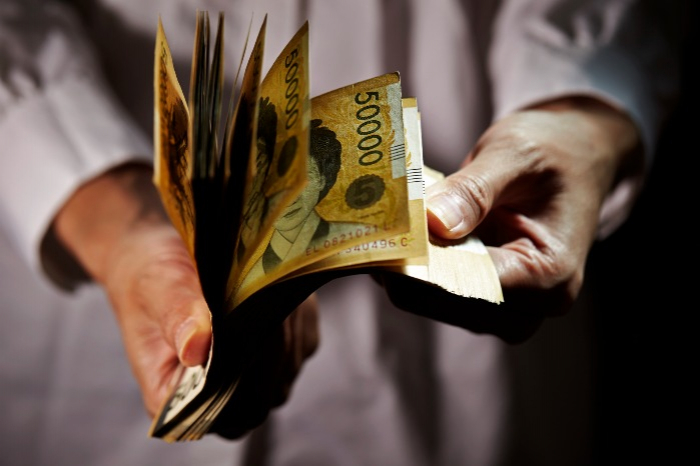Monthly average deposits for stock investment in South Korea are poised to drop below 50 trillion won ($35.1 billion) for the first time since July 2020 as individual investors flock to savings and safer assets, such as bonds.
From Oct. 1 to Oct. 27, the average deposits for stock investment reached 49.72 trillion won, according to Korea Financial Investment Association (KOFIA). With the downtrend, the amount for October is likely to be less than 50 trillion won.
The average deposits for stocks, managed by investment brokerage firms, fell to 46.51 trillion won in July 2020. The amount for October is set to drop below 50 trillion won for the first time in two years and three months.
Monthly deposits for stocks surpassed 50 trillion won for the first time in August of 2020 as
“the Ants,” or Korean retail investors, started their buying spree of domestic equities as foreign investors dumped Korean stocks amid COVID-19.
The deposits for stock investment reached around 70 trillion won in August 2021, marking the highest monthly record. As the market turned bearish from early this year, the deposits have been steadily shrinking and fell below 60 trillion won in May.
Bond investments and savings deposits have surged instead, indicating retail investors’ turning to safer assets.
Individual investors bought a net of 16.65 trillion won of bonds in the over-the-counter bond market between Oct. 1 and Oct. 28, according to KOFIA. It has nearly four times the 4.41 trillion won of the same period last year.
Korean commercial banks’ fixed deposits increased by 32.5 trillion won to 875.4 trillion won in September, according to a financial market report by the Bank of Korea. It is the largest increase since the country’s central bank started the research in 2002.
Write to Seok-Cheol Choi at
dolsoi@hankyung.comJihyun Kim edited this article.





